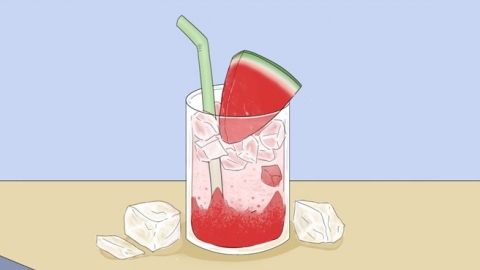Why can't patients with gastritis eat cold-natured foods?
Generally, the reasons why patients with gastritis should avoid cold-natured foods include irritation of the gastric mucosa, impaired digestive function, gastrointestinal spasms, increased gastric acid secretion, and weakened immunity. Detailed explanations are as follows:

1. Irritation of the gastric mucosa: After entering the stomach, cold-natured foods can cause sudden constriction of the blood vessels in the gastric mucosa, reducing its blood supply. When blood supply is insufficient, the mucosa's ability to self-repair and protect itself weakens. Inflamed gastric mucosa is more susceptible to stimulation from gastric acid, thereby exacerbating the inflammatory response.
2. Impaired digestive function: The stomach's digestive function requires an appropriate temperature to function normally. Cold-natured foods can lower the stomach's temperature, reducing the activity of digestive enzymes and affecting food digestion and breakdown. Gastritis patients who consume cold-natured foods may easily experience indigestion, abdominal distension, and belching.
3. Gastrointestinal spasms: The low temperature of cold foods can stimulate the smooth muscles of the gastrointestinal tract, causing sudden contractions and resulting in gastrointestinal spasms. Patients with gastritis have a more sensitive gastrointestinal tract; spasms can intensify stomach pain symptoms and lead to disordered intestinal motility, causing diarrhea and affecting normal gastrointestinal physiological functions.
4. Increased gastric acid secretion: Cold-natured foods can irritate the gastric mucosa, promoting increased secretion of gastric acid. For gastritis patients, excessive gastric acid can further irritate the inflamed areas, erode the gastric mucosa, worsen mucosal damage, hinder the recovery of gastritis, and may even lead to more severe gastric conditions such as gastric ulcers.
5. Weakened immunity: Regular consumption of cold-natured foods can damage the body's yang energy, especially that of the spleen and stomach. Insufficient yang energy in the spleen and stomach can affect the body's overall immune function. Gastritis patients are relatively weak; a decline in immunity increases the risk of gastrointestinal infections, potentially causing recurrent or worsening of gastritis.
Patients with gastritis should avoid consuming cold-natured foods and choose suitable diets to nourish the stomach and promote recovery. If significant discomfort occurs after consuming cold-natured foods, timely medical consultation and targeted treatment are recommended.







